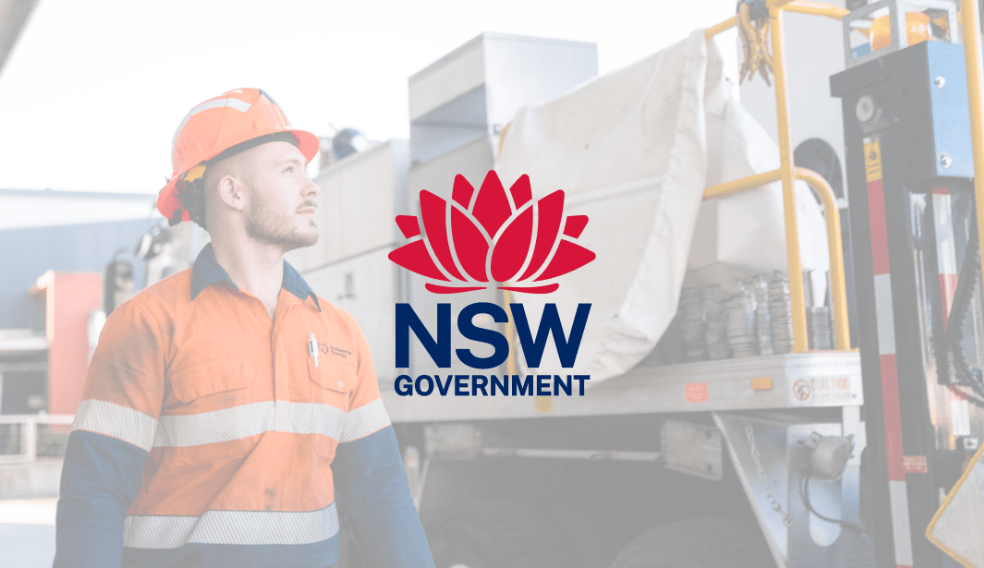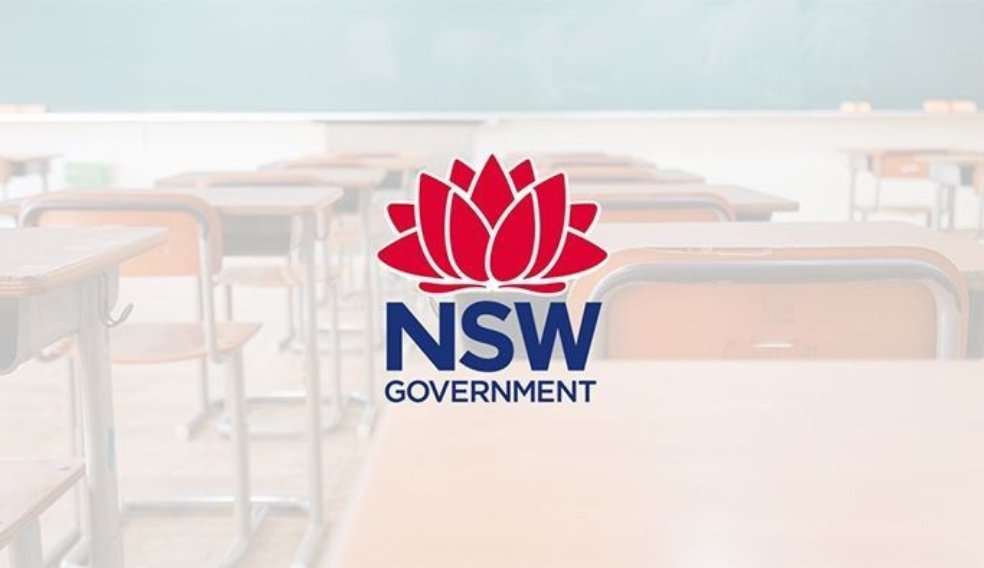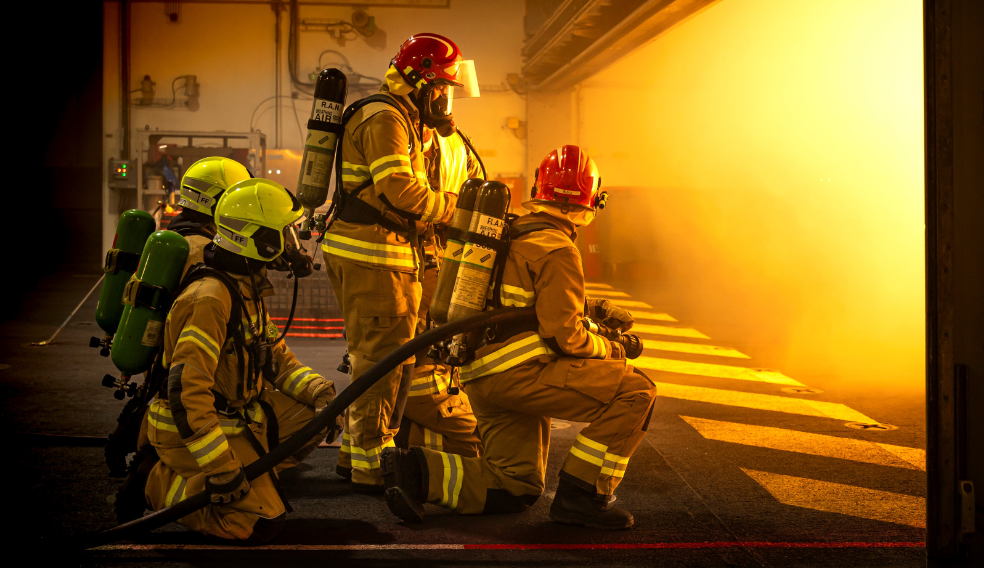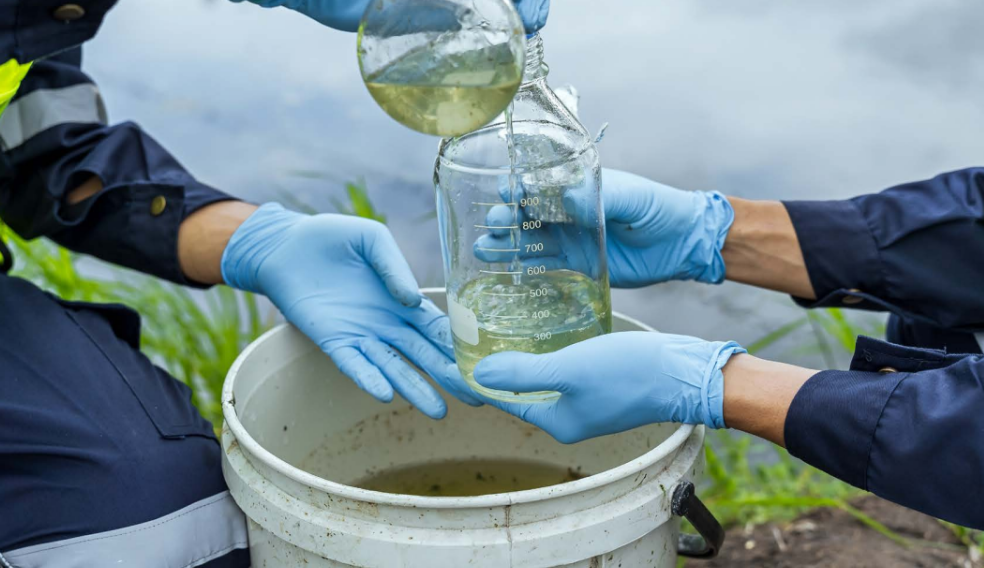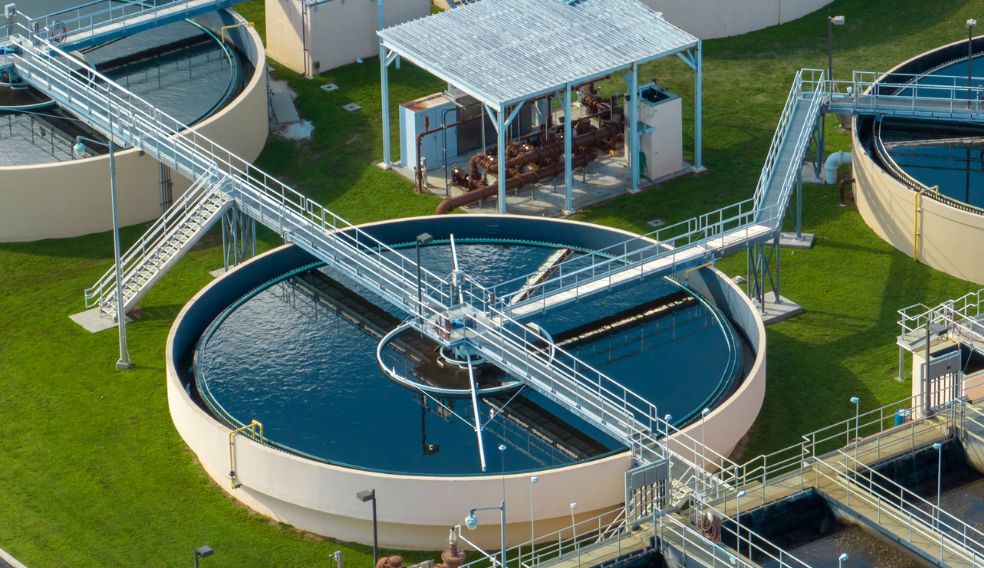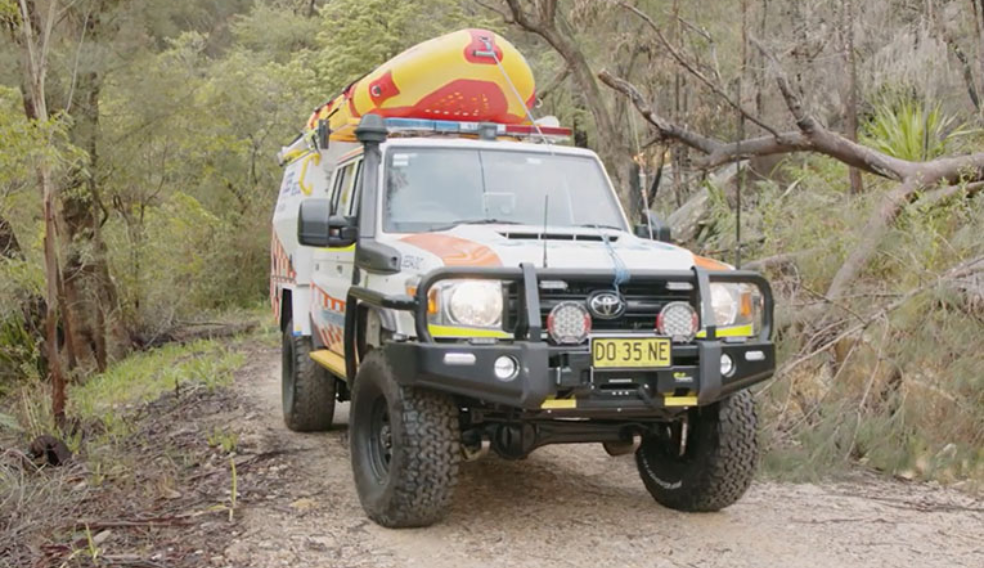Oct 16, 2025
NSW Public Sector ITAB October 2025 Newsletter
GTAN AND WTAN September forum resources available
Facilitated by the NSW Public Sector ITAB, the Government & Public Safety and Water Industry Skills and Training Networks (GTAN and WTAN) meet regularly to share and discuss issues impacting skill development within government, public safety and water industries across metropolitan, regional and rural NSW.
On behalf of the two networks, I’d like to thank all presenters who so generously shared their insights at the GTAN & WTAN forums held on 23 and 24 September 2025. I would particularly like to thank Susan Noonan and Anthony Jones (Public Skills Australia), Caitlin Tanaka (Guide Dogs NSW/ACT), Lili Elbanna (Fresh Start Program OLG), George Wall (BuildSkills Australia), Murray Powell (Optimal Stormwater and Lisa Andersons (DCCEEW) for their presentations and continuing support of the Public Sector ITAB.
The ITAB would like to thank all those who participated in the September online GTAN and WTAN forums and hope that the topics and insights shared in the sessions were interesting and relevant for all.
Final round for 1000 Public Sector Apprenticeships & Traineeships Program
The NSW Government is advancing its pledge to recruit an additional 1,000 apprentices and trainees across public sector departments, with the final round of applications now open. Funding has been approved for an additional 432 roles across 73 agencies, taking the total number of roles offered above the original 1000 target.
Since the program launched, 651 young people have already been placed, with an impressive 94% retention rate. The placements are well distributed, with nearly equal representation in regional and metropolitan areas.
Among the agencies participating in the final round of the program are National Parks & Wildlife Service, Art Gallery of NSW, NSW Police, NSW Port Authority, Transport for NSW, Sydney Trains, Essential Energy, and NSW Health.
This flagship program complements other NSW efforts to expand youth employment and skills development across the state. For more information, or to submit an expression of interest application, visit the NSW Government website.
NSW Fee-Free traineeships
Traineeships remain one of NSW’s most effective pathways into stable, rewarding careers across a diverse range of industries. The NSW Government has announced a continuation of the Fee-Free Traineeship initiative until 30 June 2027, which can remove training costs of up to $1,000 per person for eligible participants.
Under this initiative, trainees can combine paid employment with nationally recognised training, gaining hands-on experience and formal qualifications simultaneously. Most traineeships take between one and two years to complete and are designed to build practical, work-ready skills aligned with industry needs.
Currently, more than 390 traineeship qualifications are subsidised through the Smart and Skilled program. These span priority sectors such as early childhood education and care, health and allied services, business administration, information technology, community services, hospitality, logistics, and warehouse operations.
Employers are encouraged to take advantage of the available supports including Commonwealth wage subsidies, mentoring programs, and training incentives which can be combined with the fee-free policy to make employing trainees more affordable and sustainable.
Further details, including eligibility criteria and a full list of funded traineeship qualifications, are available on the Skills NSW website.
Voices of apprentices and trainees shape NSW Training Reform
Apprentices and trainees from across NSW recently met with Skills Minister Steve Whan in Dapto to share firsthand insights on improving the state’s apprenticeship and traineeship framework.
This roundtable featured VET Ambassadors who are past winners and finalists from the NSW Training Awards, representing sectors such as engineering, healthcare, hospitality, education, construction, and local government. Their discussions focused on both strengths and pain points in the system, aiming to inform reforms under the NSW Government’s review of the Apprenticeship and Traineeship Act.
The review, a key plank of the NSW Skills Plan and a response to workforce skill shortages, is designed to strengthen the system by making it easier to navigate and responsive to user needs while remaining aligned to industry demands in areas such as clean energy, care, technology, and construction.
To date, over 8,000 survey responses have been received to a review of the Apprenticeship and Traineeship Act, highlighting recurring themes such as the need for consistent workplace support, clearer understanding of learner rights, and streamlined administrative processes to boost completion rates. The Dapto consultation is one of several being held statewide to ensure reforms are grounded in the experiences of those who live them.
Minister Whan emphasized that hearing from lived experience is vital, stating that this feedback will guide efforts to create a system that is simpler, fairer and gives every apprentice and trainee the best chance of success. He added that apprenticeships and traineeships are foundational to building NSW’s future workforce and economic prosperity.
Read the full article on the Department of Education website.
Defence and NSW emergency service agencies join forces
Emergency response teams from the Royal Australian Navy and NSW emergency services recently joined forces in Sydney for Exercise Vulcan Phoenix - a large-scale training drill designed to test and strengthen inter-agency coordination during high-risk incidents.
The exercise simulated a fire and multiple casualties aboard HMAS Adelaide at the Garden Island Defence Precinct, involving personnel from HMAS Adelaide, HMAS Kuttabul, Fire and Rescue NSW, NSW Ambulance, NSW Police, and the Australian Federal Police.
Conducted in a controlled environment, the scenario tested emergency response procedures, communication, and interoperability between Defence and civilian agencies. Captain Rebecca Levitt, Commanding Officer of HMAS Kuttabul, said the exercise reinforced Navy’s preparedness and close working relationship with local emergency services, noting that “the safety of our people is paramount.”
Emergency service leaders echoed the value of the collaboration. FRNSW Superintendent Trent Lawrence said it was a rare opportunity to train aboard a naval vessel and apply marine firefighting skills alongside Navy specialists. while NSW Police Inspector Stuart Byrnes described it as an excellent learning exercise that deepened cross-agency understanding.
Vulcan Phoenix continues to serve as a vital platform for Defence and emergency agencies to build shared capability, trust, and readiness to respond effectively to real-world emergencies.
New competency benchmark for local water utility operators in NSW
Following extensive consultation with the water and training industries, the Competency benchmark for LWU operators in NSW has been released.
The Competency benchmark aims to address significant challenges in the water sector, including inconsistent training standards, limited access to quality training, and a lack of clear guidance on the skills required for critical operational roles.
NSW Department of Climate Change, Energy, the Environment and Water (DCCEEW) is seeking expressions of interest from professionals across the water operations and training sectors to join a new Advisory Panel supporting implementation of the competency benchmark.
EOIs close 24 October 2025. More information is available here.
Major investment supports regional apprentices and trainees
Regional apprentices and trainees across NSW are set to benefit from a major $150 million joint investment by federal and NSW Governments to strengthen the state’s skilled workforce.
Delivered under the National Skills Agreement, the funding includes a $10 million expansion of the Vocational Training Assistance Scheme (VTAS), providing vital travel and accommodation support for students who must travel more than 110 kilometres round trip to attend day or block release training. This initiative directly addresses the issue of distance which is one of the biggest barriers to training completion in regional areas.
This funding will help more regional students gain the skills and qualifications needed to support their local communities and industries.
The full media release can be accessed here.
Regulators plan to simplify VET and Higher Education oversight
The Australian Skills Quality Authority (ASQA) and the Tertiary Education Quality and Standards Agency (TEQSA) have released their Dual Sector Regulatory Strategy, outlining a plan to reduce red tape and improve coordination for providers delivering both vocational and higher education programs.
Dual-sector institutions currently face significant duplication, needing to comply with multiple regulatory frameworks. The new strategy recognises this burden and sets out three practical steps that can begin immediately and be completed within three years:
- Better collaboration and information sharing between regulators to avoid duplicate audits and reviews.
- Aligned evidence requirements for similar compliance activities to streamline reporting.
- Support for stronger governance within dual-sector providers to build confidence and reduce oversight complexity.
The strategy also highlights longer-term goals, including greater harmonisation of standards, improved data sharing, and research into innovative assurance models. Together, these reforms aim to create a more coherent regulatory environment that maintains quality while freeing providers to focus on teaching, learning, and student outcomes.
NSW Water Directorate Annual Forum
Everyone is welcome to attend the NSW Water Directorate Annual Forum on Friday, 31 October 2025. It’s a great opportunity to connect with water professionals from across the state for an in-depth exploration of the biggest challenges shaping local water management and planning.
This year’s theme, “Frights, Floods and Foresight: Navigating Water Risk Management,” will tackle the realities of climate risk, infrastructure resilience, and operational preparedness. Delegates will hear from leading experts and share insights on the key issues confronting local utilities today. The Program includes:
- Global Insights for Local Solutions: Gain valuable knowledge from Dr Annette Davison, 2021 Water Professional of the Year and a world authority on water cycle risk management. Dr Davison will present case studies of major international water quality incidents and the direct lessons they hold for NSW councils and utilities.
- Building Resilient Systems: Exchange forward-thinking approaches with peers on strengthening infrastructure, managing emerging risks, and ensuring reliable service continuity for local communities.
- Collaborative Networking: Engage with water and sewerage managers, engineers, operational leaders, and government partners who share challenges and commitment to sustainable service delivery.
The Forum is to be held on Friday, 31 October 2025 (9:00-4:00) at the Aerial UTS Function Centre, Ultimo, Sydney. Tickets: Members $209 | Non-Members $275 (incl GST).
New fleet strengthens NSW SES disaster response efforts
The NSW Government is boosting the State Emergency Service’s (SES) disaster response capacity with the rollout of new purpose-built flood rescue vehicles across regional and coastal NSW.
As part of the government’s ongoing fleet replacement program, the upgrades include 10 new High Clearance Vehicles and 11 light flood rescue Land Cruisers. The new additions will significantly enhance the SES’s ability to access isolated communities and perform critical rescues during flood and storm events.
The new additions will significantly enhance the SES’s ability to access isolated communities and perform critical rescues during flood and storm events.
SES Deputy Commissioner Damien Johnson described the vehicles as a significant step in strengthening frontline emergency capability. He confirmed the designs reflect the realities of field operations such as wading through floodwaters, navigating fire trails or delivering supplies to cut-off communities.
The high clearance 4WD vehicles feature custom-built flood rescue bodies, integrated raft storage, and off-road capability to operate in water depths of up to 1.2 metres.
The rollout follows one of the SES’s busiest years since 2022, with more than 59,000 incidents attended across NSW which was up by 24,500 on the previous year. These new vehicles will ensure SES volunteers are better equipped to respond safely and efficiently when the next emergency strikes.
Read the full article on the NSW Government website.
Energy and professional sectors drive Australia’s strongest job growth
Australia’s electricity, gas, water and waste services sector has recorded the fastest employment growth of any industry, according to Jobs and Skills Australia’s latest Labour Force Trending (LFT) data. Employment in the sector grew by 8.3%, adding around 15,800 new jobs over the past year which is a reflection of the nation’s accelerating shift toward electrification and clean energy.
The professional occupations group also led the way, with employment rising 4.7% and creating 177,400 new jobs. Professionals now make up 27% of Australia’s total workforce, underscoring their central role in the country’s knowledge-based economy.
The LFT data highlights a strong trend toward higher-skilled employment, with more than three-quarters of all job growth occurring in Skill Level 1 roles typically requiring a bachelor’s degree or higher qualification.
Developed by Jobs and Skills Australia, the LFT data provides insight into employment changes over the past year, five years, and decade, and complements other tools such as the Internet Vacancy Index, Employment Projections, and the Jobs and Skills Atlas. Together, these sources help inform workforce planning, policy development, and labour market research.
The dataset is designed to give a long-term view of industry and occupational change, helping stakeholders identify trends, anticipate workforce gaps, and strengthen evidence-based decision-making across Australia’s evolving labour market.
Access the Labour Force Trending data on the Jobs and Skills Australia website.
National housing target to create an unprecedented workforce challenge
Australia’s goal to build 1.2 million new homes by 2029 will require a dramatic expansion of the construction workforce, according to the 2025 Housing Workforce Capacity Study released by BuildSkills Australia, the national Jobs and Skills Council for the built environment sector.
The report states that only 23,000 more workers will enter construction by 2029 at current rates, which is well below demand. To meet the National Housing Accord target, a further 116,700 workers must be mobilised nationwide.
BuildSkills describes the task as a profound challenge, requiring a broad-based and sustained increase in residential construction labour across all regions. The report notes that unlike past growth cycles, the industry cannot rely on workers shifting from other sectors such as mining or commercial construction, as demand for skilled labour remains high across the economy.
It also cautions that rising capital investment will likely intensify labour shortages, creating “historically unprecedented imbalances” in workforce supply and demand over the coming years.
National Jobs and Skills Councils Update
Jobs and Skills Councils (JSCs) are a national network of industry owned and led organisations, designed to provide leadership in addressing national skills and training needs. They have been established to supply industry with a strong and strategic voice within the VET sector as part of broader government-led skills reform.
JSC activities including Workforce and Training Package projects relevant to Public Sector industries are listed below.
BuildSkills Australia (BSA): BuildSkills is conducting both Training Product and Research Projects which can be accessed using the links below:
- Housing Workforce Capacity Study
- Water Sector Workforce Roadmap
- White Card Implementation
- Minimum Australian Context Gap Training for Migrant Plumbers
- Utility Locating
- Civil Construction Review
- Hydrogen Skill Needs in the Plumbing and Gas Industry
- Insulation Installation & Inspection
Water industry stakeholders should reach out to George Wall for any specific water sector issues.
Future Skills Organisation (FSO): FSO has a range of Projects underway which can be accessed using the links below:
- Supporting Generative AI Adoption by Workers: The Role of Employers
- ICT Training Package: Needs and Gap Analysis
- Qualification Design to Support Digital Capability
- Uplift Digital Capability
- Entry Level Pathways
- Digital Capability Training Product Trial (TPT)
- Telecommunications Technology Qualifications Update
- Specialist Artificial Intelligence
Public Skills Australia (PSA): Access PSA’s current projects via the links below.
- Defence Capability – VET Systems Pathways Framework
- Defence Cyber Risk Assessment
- Review of Procurement and Contracting Qualifications
- POL - Police Training Package Release 11
- Defence Youth Development
- Volunteer Leadership Project
- Review of Government Investigations Qualifications
- Police Crash Investigation and Analysis Review
- Correctional Services Implementation Findings Report
- Local Government Skills Audit
- Auslan, Interpreting and Translating Qualification Review




